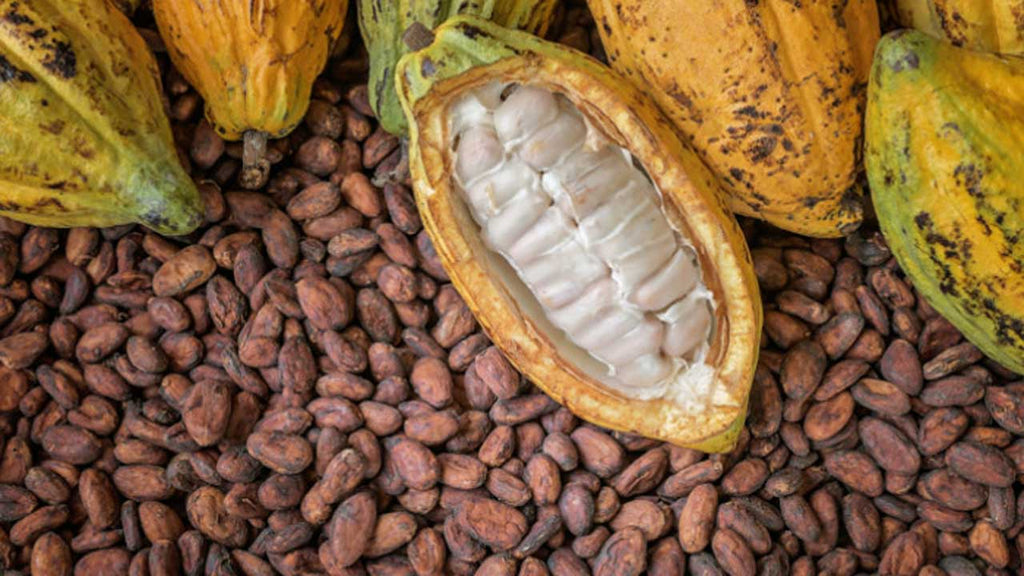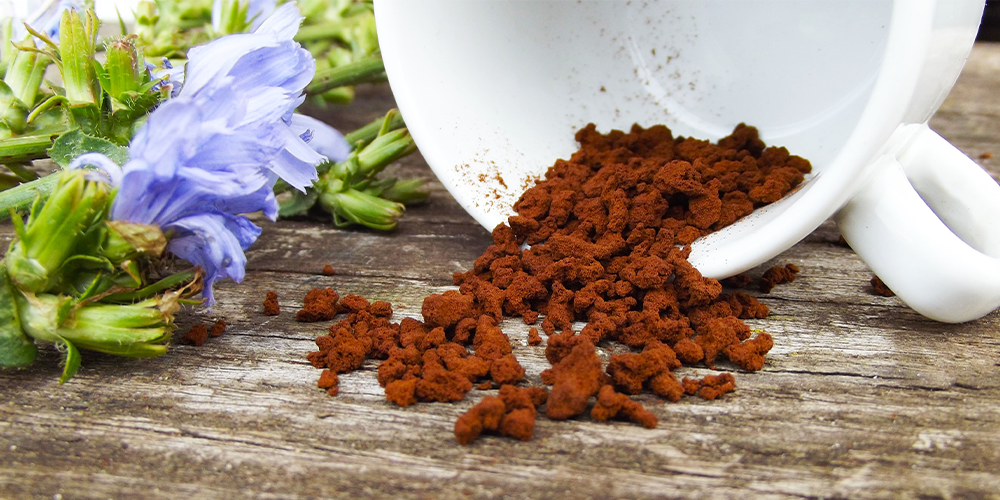
6 benefits to taking Cordyceps

1. May Boost Exercise Performance
Cordyceps are thought to increase the body’s production of the molecule adenosine triphosphate (ATP), which is essential for delivering energy to the muscles.
This may improve the way your body uses oxygen, especially duringexercise (1Trusted Source, 2).
In one study, researchers tested their effects on exercise capacity in 30 healthy older adults using a stationary bike. Participants received either 3 grams per day of a synthetic strain of Cordyceps called CS-4 or a placebo pill for six weeks.
By the end of the study, VO2 max had increased by 7% in participants who had taken CS-4, while participants given the placebo pill showed no change (3).
VO2 max is a measurement used to determine fitness level (4Trusted Source).
2. Anti-Aging Properties
The elderly have traditionally used Cordyceps to reduce fatigue and boost strength and sex drive.
Researchers believe their antioxidant content may explain their antiaging potential (9Trusted Source).
Several studies have found that Cordyceps increase antioxidants in aged mice, helping improve memory and sexual function (10Trusted
Source, 11Trusted Source, 12Trusted Source).
Antioxidants are molecules that fight cell damage by neutralizing free radicals, which can otherwise contribute to disease and aging
3. Potential Anti-Tumor E
Cordyceps’ potential to slow the growth of tumors has generated significant interest in recent years.
Researchers believe the fungi may exert anti-tumor effects in several ways.
In test-tube studies, Cordyceps have been shown to inhibit the growth of many types of human cancer cells, including lung, colon, skin and liver cancers (18Trusted Source, 19Trusted Source, 20Trusted Source, 21Trusted Source).
Studies in mice have also shown that Cordyceps have anti-tumor effects on lymphoma, melanoma and lung cancer (22Trusted Source, 23Trusted Source, 24Trusted Source, 25Trusted Source).
Cordyceps may also reverse the side effects associated with many forms of cancer therapy. One of these side effects is leukopenia.
4. May Help Manage Type 2 Diabetes
Cordyceps contain a special type of sugar that may help treat diabetes.
Diabetes is a disease in which the body either does not produce or respond to the hormone insulin, which normally transports the sugar glucose into your cells for energy.
When your body does not produce enough insulin or respond well to it, glucose cannot enter the cells, so it stays in the blood. Over time, having too much glucose in the blood can cause serious health problems.
5. Possible Benefits for Heart Health
As research emerges on the effects of Cordyceps on heart health, the benefits of the fungi are becoming increasingly apparent.
In fact, Cordyceps are approved in China for the treatment of arrhythmia, a condition in which the heartbeat is too slow, too fast or irregular (32Trusted Source).
A study found that Cordyceps significantly reduced heart injuries in rats with chronic kidney disease. Injuries to the heart from chronic kidney disease are thought to increase the risk of heart failure, so reducing these injuries may help avoid this outcome (33Trusted Source).
The researchers attributed these findings to the adenosine content of Cordyceps. Adenosine is a naturally occurring compound that has heart-protective effects (34Trusted Source).
Cordyceps may also have a beneficial effect on cholesterol levels.
6. May Help Fight Inflammation
Cordyceps is said to help fight inflammation in the body.
Although some inflammation is good, too much can lead to diseases like heart disease and cancer.
Research has shown that when human cells are exposed to Cordyceps, special proteins that increase inflammation in the body become suppressed (39Trusted Source, 40Trusted Source, 41Trusted Source, 42Trusted Source).
Thanks to these potential effects, researchers believe Cordyceps may serve as a useful anti-inflammatory supplement or drug (42Trusted Source)
Resources : https://www.healthline.com/nutrition/cordycepsbenefits#TOC_TITLE_HDR_8
Cordyceps are thought to increase the body’s production of the molecule adenosine triphosphate (ATP), which is essential for delivering energy to the muscles.
This may improve the way your body uses oxygen, especially duringexercise (1Trusted Source, 2).
In one study, researchers tested their effects on exercise capacity in 30 healthy older adults using a stationary bike. Participants received either 3 grams per day of a synthetic strain of Cordyceps called CS-4 or a placebo pill for six weeks.
By the end of the study, VO2 max had increased by 7% in participants who had taken CS-4, while participants given the placebo pill showed no change (3).
VO2 max is a measurement used to determine fitness level (4Trusted Source).
2. Anti-Aging Properties
The elderly have traditionally used Cordyceps to reduce fatigue and boost strength and sex drive.
Researchers believe their antioxidant content may explain their antiaging potential (9Trusted Source).
Several studies have found that Cordyceps increase antioxidants in aged mice, helping improve memory and sexual function (10Trusted
Source, 11Trusted Source, 12Trusted Source).
Antioxidants are molecules that fight cell damage by neutralizing free radicals, which can otherwise contribute to disease and aging
3. Potential Anti-Tumor E
Cordyceps’ potential to slow the growth of tumors has generated significant interest in recent years.
Researchers believe the fungi may exert anti-tumor effects in several ways.
In test-tube studies, Cordyceps have been shown to inhibit the growth of many types of human cancer cells, including lung, colon, skin and liver cancers (18Trusted Source, 19Trusted Source, 20Trusted Source, 21Trusted Source).
Studies in mice have also shown that Cordyceps have anti-tumor effects on lymphoma, melanoma and lung cancer (22Trusted Source, 23Trusted Source, 24Trusted Source, 25Trusted Source).
Cordyceps may also reverse the side effects associated with many forms of cancer therapy. One of these side effects is leukopenia.
4. May Help Manage Type 2 Diabetes
Cordyceps contain a special type of sugar that may help treat diabetes.
Diabetes is a disease in which the body either does not produce or respond to the hormone insulin, which normally transports the sugar glucose into your cells for energy.
When your body does not produce enough insulin or respond well to it, glucose cannot enter the cells, so it stays in the blood. Over time, having too much glucose in the blood can cause serious health problems.
5. Possible Benefits for Heart Health
As research emerges on the effects of Cordyceps on heart health, the benefits of the fungi are becoming increasingly apparent.
In fact, Cordyceps are approved in China for the treatment of arrhythmia, a condition in which the heartbeat is too slow, too fast or irregular (32Trusted Source).
A study found that Cordyceps significantly reduced heart injuries in rats with chronic kidney disease. Injuries to the heart from chronic kidney disease are thought to increase the risk of heart failure, so reducing these injuries may help avoid this outcome (33Trusted Source).
The researchers attributed these findings to the adenosine content of Cordyceps. Adenosine is a naturally occurring compound that has heart-protective effects (34Trusted Source).
Cordyceps may also have a beneficial effect on cholesterol levels.
6. May Help Fight Inflammation
Cordyceps is said to help fight inflammation in the body.
Although some inflammation is good, too much can lead to diseases like heart disease and cancer.
Research has shown that when human cells are exposed to Cordyceps, special proteins that increase inflammation in the body become suppressed (39Trusted Source, 40Trusted Source, 41Trusted Source, 42Trusted Source).
Thanks to these potential effects, researchers believe Cordyceps may serve as a useful anti-inflammatory supplement or drug (42Trusted Source)
Resources : https://www.healthline.com/nutrition/cordycepsbenefits#TOC_TITLE_HDR_8







